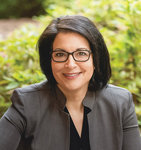

Editor's Note: Check out our recent E&P Reports vodcast with Deborah Dwyer and Kathy English about "'unpublishing the news."
In a digital age where news is preserved online, newsrooms are facing increasing pressure to “unpublish.” To help newsrooms address the matter, Deborah Dwyer, a Reynolds Journalism Institute (RJI) fellow and a doctoral candidate in the Hussman School of Journalism and Media at the University of North Carolina-Chapel Hill, created Unpublishing the News in collaboration with an expert advisory board. Her work can be found at unpublishingthenews.com.
“My definition of unpublishing is the act of deleting, obscuring, or significantly altering factual content—when it was reported at least—in response to a third-party request outside of the newsroom,” Dwyer said. “(These requests) are typically prompted by some sort of motivation either embarrassment, safety concerns, or concern about reputation.”
She added that unpublishing requests are not just limited to text. It could be a photo, photo caption, video clip, or graphic that prompts a request.
The issue of unpublishing has been at the forefront of Dwyer’s career. In 2016, she set out to get her PhD and quickly found her research focused on unpublishing. Additionally, Dwyer described sitting in on a committee meeting at the Chattanooga Times Free Press, where she previously served as director of marketing, as the group discussed several pending unpublishing requests. She then landed her 2020-2021 RJI fellowship.
Unpublishing the News includes many resources for newsrooms. Key resources include a blog that provides information on how to approach the challenges of unpublishing; a repository of newsroom unpublishing policies which currently includes more than 50 policies (outlets nationwide and worldwide can submit their policies at unpublishingthenews.com/share-your-unpublishing-policy); and an editor’s form, where news leaders can discuss among themselves and seek guidance on specific challenges.
Newsrooms leaders will also find there the results of Dwyer’s national survey of 1,350 U.S. adults regarding the public’s perspectives with unpublishing. One major finding is that 81 percent of U.S. adults believe all news organizations should follow a set of standard guidelines about what information can and cannot be removed from their archives.
As part of her fellowship, Dwyer has also partnered with three newsrooms—Times Free Press, Missourian and KOMU, a television station in Missouri—to develop tools and processes that can be adopted by other newsrooms. Dwyer’s work with the Times Free Press is focused on developing a formalized submission and intake process as well as developing a database to track the decisions of the organization, basic reasoning, and the specific actions taken. Her work with the Missourian and KOMU is focused on developing a set of pre-publication practices and a basic set of unpublishing guidelines.
Dwyer described the “veil of secrecy” when it came to unpublishing. No one wants to admit they are doing it; therefore, newsrooms haven’t been able to openly talk about their struggles with the issue.
“My mission is for this website to be the first foray into ‘let’s start having a more global conversation about it,’” she said. “I am fully dedicated to having a basic set of guidelines that newsrooms can decide to adopt within a year or so.”
Comments
No comments on this item Please log in to comment by clicking here